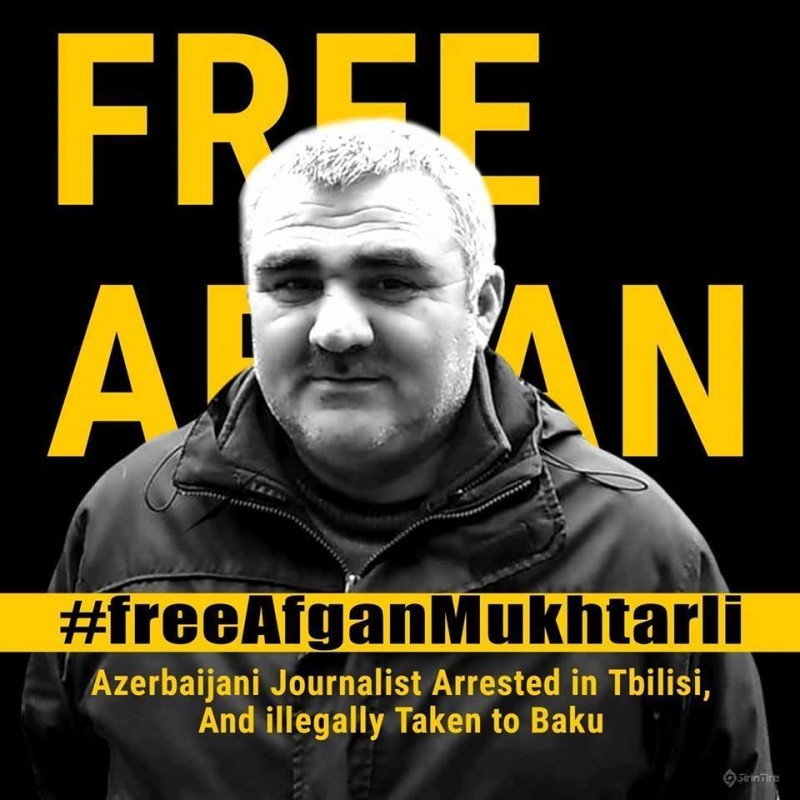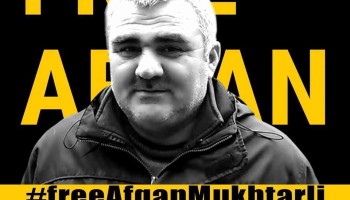Mukhtarli works for Meydan TV, an internet-based independent Azeri-language media outlet and is a member of the Organized Crime and Corruption Reporting Project (OCCRP) investigative journalist network. He has exposed corruption in Azerbaijani Government and was investigating President Ilham Aliyev family’s ties with Georgian business associates.
According to Human Rights Watch, his lawyer Elchin Sadigov reported that the journalist was kidnapped by Georgian-speaking men in Georgian police uniform, who put a bag over his head, beat him, changed cars twice and stuffed €10,000 in his pockets before transporting him across the border to Azerbaijan.
Once at the border checkpoint, they took photographs of Mukhtarli. He was then arrested for crossing the border without a passport.
Sadigov said that Mukhtarli was further ill-treated in Azerbaijan and suffered from a broken nose, severe pains in the chest, probably caused by a fractured rib, and several bruises on his face.
On Wednesday, a Baku court charged him for smuggling, crossing the border illegally and violently resisting arrest. The court also ruled Mukhtarli should remain in pretrial custody for three months. The journalist’s lawyers, Elchin Sadigov and Osman Kazimov, announced that they will appeal the ruling.
"Azerbaijani authorities have gone a long way in prosecuting and silencing the independent journalists and critics over the last years," Natalia Nozadze, Amnesty International's South Caucasus expert, told Organized Crime and Corruption Reporting Project (OCCRP).
"But the case of Afgan Mukhtarli marks a new low and extremely disturbing precedence, which apart violating the rights of individual involves illegal abduction and trafficking of the person cross border," she added.
Mukhtarli’s case also sends a chilling signal to other Azerbaijani dissidents abroad that their safety is no longer guaranteed even outside of country’s borders, she explained.
According to Nozadze, the journalist and his family have been repeatedly threatened and harassed by the Azerbaijani authorities. They fled to Georgia in 2015 fearing the Azerbaijani government’s severe crackdown on critical journalists.
Mukhtarli’s family told Amnesty International that he had noticed lately that he was being followed on the streets of Tbilisi.
"He is a prisoner of conscience detained solely for his work as a journalist," said Levan Asatiani, Amnesty International’s Campaigner on the South Caucasus.
While Georgian authorities are suspected of being complicit in the abduction, international rights groups and activists are calling for them to investigate and hold accountable those involved in the operation. Georgia's chief prosecutor, Irakli Shotadze, said an investigation is currently being conducted.
According to Reuters, Nils Muiznieks, the Council of Europe Commissioner for Human Rights said in a statement that "Azerbaijan's authorities must release Mr. Mukhtarli without delay and ensure that he fully enjoys his human rights, including the protection from torture and ill-treatment."






